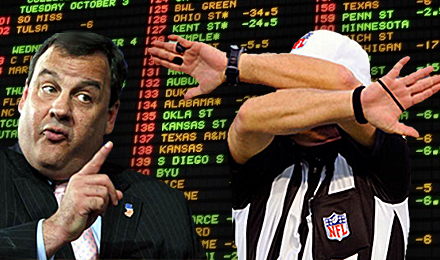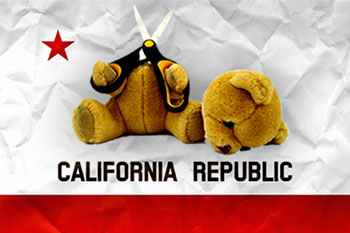 1. AMAYA GAMING’S PURCHASE OF POKERSTARS
1. AMAYA GAMING’S PURCHASE OF POKERSTARS
The first inklings of the biggest deal in the history of online gambling happened right here on CalvinAyre.com. Six weeks later, Amaya Gaming’s $4.9b acquisition of the Rational Group was officially announced and the online gambling business got all shook up like a snow-globe in the hip pocket of a twerking Kim Kardashian.
The full ramifications of Amaya’s audacious play have yet to unfold, but the changes have already been significant. PokerStars’ application for New Jersey’s regulated online gambling market was dusted off and re-examined, although little has been heard of it since. Quebec’s provincial gambling monopoly suddenly found the time to consider licensing private online gambling operators like PokerStars. And the ‘bad actor’ arguments for keeping Stars out of California were exposed for the rank protectionism they always were.
The changes weren’t all positive. The switch from fiercely independent private company to subsidiary of publicly traded Amaya forced Stars to withdraw services from a wide swathe of grey- and black-markets. The rapid-fire introduction of a number of cost-cutting measures – and the half-hearted efforts at communicating the justifications behind these changes – prompted a player backlash that would have seemed inconceivable just a year earlier.
2. NEW JERSEY’S REGULATED ONLINE GAMBLING MARKET TURNS ONE
There’s no question that the first year of New Jersey’s regulated online gambling market failed to match the pre-launch hype. While no one expected the state to live up to Gov. Chris Christie’s pie-in-the-sky projections, few if any observers expected revenue would peak in March then slip a little more each month. Fewer still expected one of its licensed operators to withdraw from the market before summer was over.
Teething problems, including difficulties in convincing banks to process online gambling payments, undoubtedly played a role in keeping revenue down. Operators’ marketing strategies – or the lack thereof – didn’t help, with some polls showing shockingly low awareness among state residents of online gambling’s new legality.
The year did have some positives, including the fact that no eight-year-olds or out-of-state residents proved adept at beating operators’ KYC and geo-location controls, thereby depriving Sheldon Adelson and his Coalition to Stop Internet Gambling of the ‘I told you so’ moment they had so stridently predicted. But the final monthly revenue total of 2014 was also the lowest revenue on record. And still no license for PokerStars.
 3. NEW JERSEY’S SPORTS BETTING CASE
3. NEW JERSEY’S SPORTS BETTING CASE
New Jersey’s legal sports betting ambitions are proving harder to kill than Freddy Krueger. After the US Supreme Court declined to hear the state’s appeal of its previous legislation, State Sen. Ray Lesniak crafted a new bill that used jujitsu on its sports league and Department of Justice opponents. Using the specific recommendations of DOJ attorneys, the state approved a plan to drop state-level prohibitions on sports betting at state racetracks and Atlantic City casinos.
The state’s latest plan will come up for discussion in a federal appeals court early in the new year and, while victory is far from assured, the state’s never-say-die attitude has won it supporters in the most unlikely places. The cause has generated reams of op-eds questioning the 1992 federal prohibition, including one written by National Basketball Association commissioner Adam Silver that gave America’s antiquated prohibition primetime coverage on the national stage.
4. FANTASY SPORTS GOES MAINSTREAM
The sports betting debate reached its apex just as the sports leagues were falling over themselves to sign lucrative deals with fantasy sports operators. Backed by capital from angel investors smelling money, companies like FanDuel and Draft Kings battled with each other to sign deals with leagues and teams that publicly claim to want no part of betting.
By the end of the year, daily fantasy sports was coming to Facebook, while brick-and-mortar casinos and racetracks were looking to get in on the action. Eilers Research suggested that the growing popularity of both DFS and social gaming posed a significant threat to the future of online gambling in the US “not only in terms of wallet-share, but also time allocation.”
5. GAMING SUPPLIER CONSOLIDATION
It was the year of the mega-deal as Scientific Games paid $5.1b to acquire Bally Technologies and GTECH spent $6.4b to acquire International Game Technology. The deals vastly outstripped 2013’s big acquisitions, which saw Bally pay $1.3b to acquire rival SHFL Entertainment and Sci-Games pay $1.5b for WMS Industries. The moves were great for M&A lawyers but lousy for staffers, many of whom were destined for the dole as their employers realized ‘synergies.’
6. SOCIAL GAMING ACQUISTIONS
Just as land-based gaming device makers were playing Hungry Hungry Hippos with each other, social casino gaming operators were the new hot girls at the acquisition bar. Caesars interactive Entertainment paid upwards of $80m for Pacific Entertainment, Bally’s paid $100m for Dragonplay, Imperus Technologies paid $100m for Diwip and Churchill Downs paid a whopping $885m for Big Fish Games.
The value of a social gaming division was evident in CIE’s earnings reports. Despite being operational in both New Jersey and Nevada’s regulated online gambling markets, CIE earned a greater share of its revenue from social gaming. DoubleDown Interactive has become the feature player in IGT’s earnings reports, which undoubtedly helped encourage GTECH to acquire IGT.
 7. CALIFORNIA BLOWS IT AGAIN
7. CALIFORNIA BLOWS IT AGAIN
No new states passed online gambling legislation in 2014; in fact, no state even came close. California did the best job of teasing its poker-playing residents but stakeholders – tribes, card rooms, racetracks – came no closer to grabbing that brass ring.
The illusion of progress came mid-year after a coalition of influential tribes put forward their unified version of online poker legislation. But another influential tribe, the Morongo Band of Mission Indians, upstaged the others by inking a deal with PokerStars and pretty soon all discussion centered around whether the Stars whale would be allowed to beach itself on California’s shore.
The issue was further complicated by Amaya’s purchase of Stars and its alleged transmogrification from ‘bad actor’ to Academy Award-winning thespian. Battle lines hardened, neither side appeared willing to give any ground and the legislative session closed without any progress.
All the respective parties have vowed to redouble their efforts in 2015 but the most recent online poker bill proposed for next year’s legislative session has only served to cement each side’s position.
8. PAUL PHUA TESTS THE FOURTH AMENDMENT
This summer’s arrest of high-rolling poker player and Asian sports betting figure Paul Phua and seven other individuals for running an illegal sports betting operation out of three luxury villas at Caesars Palace in Las Vegas was big news for the gambling industry. But the tactics that federal agents used in order to make their arrests – interfering with the villas’ internet connection then sending in undercover agents wearing hidden cameras to ‘fix’ the problem – soon elevated the story to national prominence.
The FBI’s deception was widely denounced by civil libertarians and anyone else with a healthy distrust of federal authorities’ growing disregard for the privacy rights of ordinary citizens. What the FBI hoped would be a quick and easy bust that generated some good press and some lucrative asset forfeitures could end up setting legal precedent on the limits of future police investigations.
9. MINNESOTA’S ONLINE SCRATCHERS
Minnesota made history this year by becoming the first US state lottery to offer online scratch-off tickets, which are basically slot machines by another name. State politicians freaked out, accusing Minnesota Lottery director Ed Van Petten of not waiting until they said Simon Says.
Van Petten said he’d launched the scratchers as a way to lower the median age of lottery players because the current customer base was dying off. Van Petten also believed the online activity would act as a promotional tool for overall lottery sales and data subsequently showed average retail sales rising $363 per week since the scratchers debuted.
But legislators were still too irked by Van Petten’s display of initiative so they passed a bill to kill the scratchers. Once the legislature had officially finished its session, Gov. Mark Dayton vetoed the bill, saying Van Petten deserved a chance to test his theory. Legislators have vowed to pass an override of Dayton’s veto when they get back to work in 2015, leaving the field open for another state to pick up the online scratcher flag.
10. FIRST US INTERSTATE AGREEMENTS
In February, Nevada and Delaware signed America’s first interstate online poker liquidity sharing deal, which was remarkable more for its symbolism than any tangible result. No actual data has yet flowed between the state’s licensed online poker operators and even when the spigot finally opens up, the paltry size of those state’s poker markets means few players will actually notice any difference. But the cherry has been popped and someday in 2025, when enough large states have finally signed on, players will give thanks.
The year also saw gaming regulators in New Jersey and Nevada approve the first interstate slots jackpot between brick-and-mortar casinos in their states. Unlike the online agreement, this one actually went live and players actually took notice.
